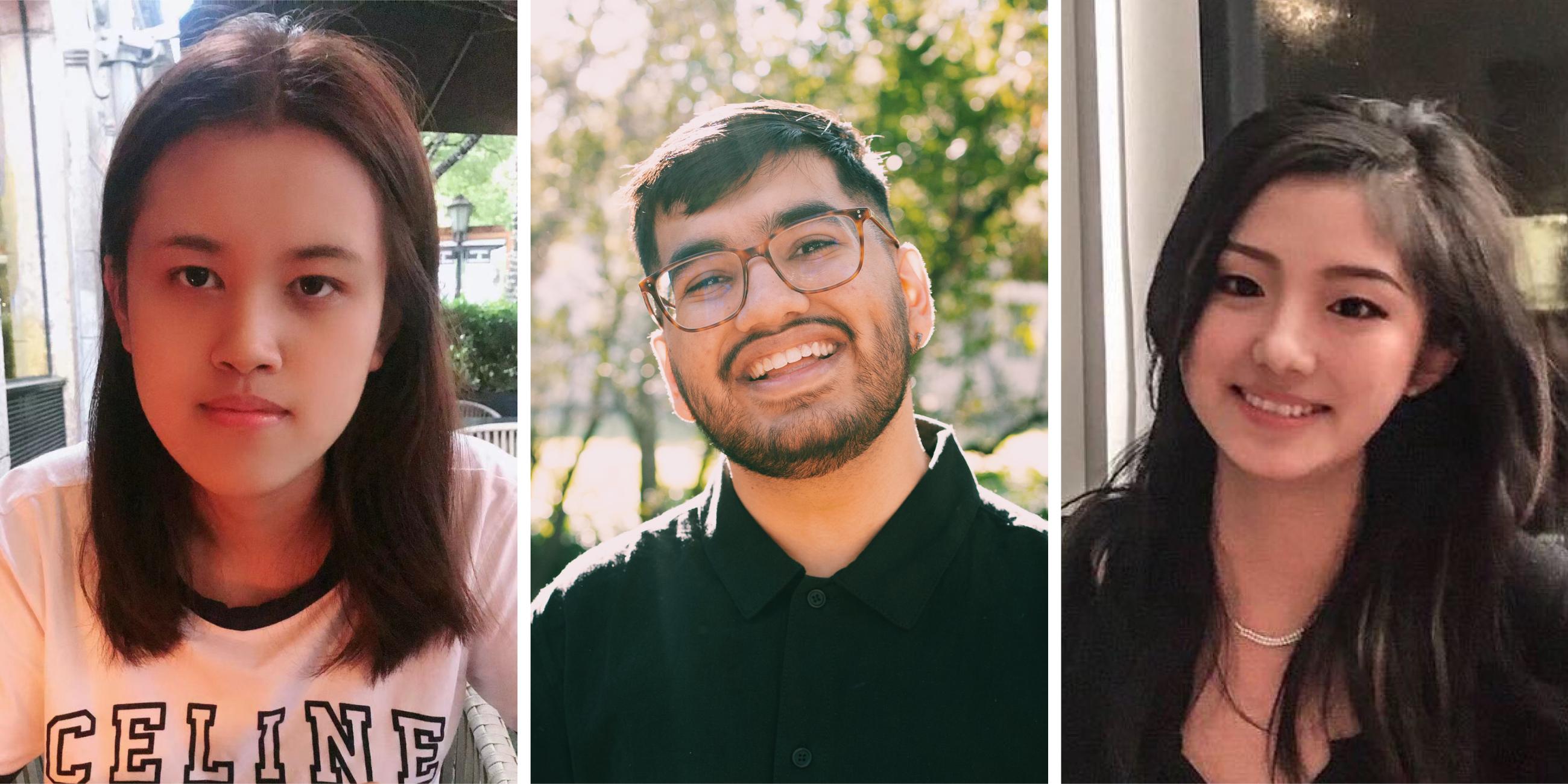
Maggie Wang, who recently graduated from UC Berkeley with a Data Science bachelor’s degree, says she's particularly proud of a student internship with the American Heart Association. “I’m helping global research into heart failure and helping to save lives.”
Wang and fellow Berkeley graduates Vihaan Manchanda and Elizabeth Hong completed internships with the American Heart Association this past spring as part of the Data Science Discovery program. They supported the Get With The Guidelines® programs, which maintain a database of over 10 million patient records from hospitals across the United States. The program uses this data to provide hospitals with metrics that help them improve care for their patients.
Aggregating over three decades of data, the Get With The Guidelines programs also serve researchers worldwide, informing clinicians about better practices in cardiovascular care, according to Jennifer Hall, chief of data science at the American Heart Association. Get With The Guidelines® data has yielded more than 700 publications on topics ranging from the increased risk of stroke among patients hospitalized with COVID-19 to racial differences in long-term outcomes among survivors of in-hospital cardiac arrest.
“We want to even the playing field so that every hospital in the United States delivers great care and every individual is being treated fairly and equally,” said Hall. “We’re also helping clinical staff keep up with the guidelines in a field that changes constantly.”
The association has participated in the Data Science Discovery program for three years, working with Berkeley data science students on various aspects of the Get With The Guidelines data. Hall, who holds a Ph.D. in physiology from UC Berkeley, was so impressed with the interns from this past cycle that she offered them jobs at the American Heart Association. All three accepted.
“This was an amazing learning opportunity, and it’s all thanks to the Discovery program that I have a job now,” said Manchanda.
Leveraging big data to set standards for patient care
Though Wang needed to teach herself Django programming language as an intern, she wasn’t intimidated by the challenge. “I was confident I could learn it myself because UC Berkeley had already given me the space to do that kind of work on my own,” Wang explained.
Hospitals enrolled in the Get With The Guidelines programs provide data to the American Heart Association related to patients with heart health issues. The Get With The Guidelines Stroke program, for example, combines more than 5 million patient records from over 2,000 hospitals, including the majority of patients in the United States that have experienced a stroke since the program’s start in 2003. In return, the American Heart Association shares data and resources with hospital staff with the goal of continuous quality improvement in patient care.
The interns were paired with the team that provides the data cleaning, harmonizing and standardizing of the de-identified data for the Get With The Guidelines programs. Their work was instrumental in helping the American Heart Association make this data accessible for research nationally and globally to disseminate the latest clinical findings, said Hall.
The intern team used tools including Django, Python, SQL Query and Jupyter Notebook and learned the nuances of working with big data, especially cleaning, loading and visualizing. One dataset that Hong worked on included 74,000 observations and 285 variables, documenting pre-existing conditions, medical interventions and other details about the cardiac event that brought the patient to the hospital.
Creating opportunities for project partners and students

“I'm really thankful for the Discovery program. Whenever someone sees my resume, they're like, ‘He has so many experiences!’” laughed Manchanda. “Every semester, I had this opportunity to apply what I learned in class to projects in the real world.”
The Data Science Discovery program enables undergraduate students to complete a semester-long data science project in collaboration with faculty, nonprofit organizations, government agencies or businesses.
For Hong, the Get With The Guidelines project was ideal because she’d studied biology and data science and wanted to work at the intersection of those fields. Wang said she chose the internship over other offers because she recognized Hall as a great leader and wanted to learn from her.
Hall’s leadership also inspired Manchanda. “She's one of the kindest people. You just go into a meeting with a bright smile when you’re working with Dr. Jennifer, ” he said. “It’s refreshing to have a mentor with so much experience in the field and to know you can just text her anytime and ask questions.”
Hall said the American Heart Association intends to continue participating in the Discovery program as a project partner. She hopes Hong, Manchanda and Wang will mentor the new interns who join the project. “We’re interested in how we can help interns succeed here and also how we can better prepare them for their next job,” she added.
Manchanda completed five internships through the Discovery program, but he was particularly excited when he began this project with the American Heart Association. He wanted his last Discovery program cycle before graduating to align strongly with his values. He reflected, “I’ve always wanted to help people, and the best part about this project is the impact it has on so many lives.”
The Data Science Discovery program at Berkeley is currently accepting applications from project partners. Visit the program’s website to learn more or to apply.
